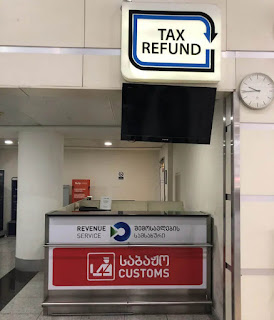12 years of travelling and living without mobile phone
Have you considered living or travelling without a mobile phone? Read how we did it for 12 years and what have been the pros and the cons.
We've been living without a mobile phone for 12 years. Before embarking on our nomadic journey in 2004, our friends bought us a brand new smart phone for keeping in touch. We carried the precious gift all over the world and kept purchasing new SIM cards in each and every country we visited.
In 2005, we were in Bali and just about to leave to Australia and New Zealand when we noticed that our phone was gone. We had checked out from our hotel in Kuta Beach and had forgot the phone on the bedside table. We were at the airport but as there was still enough time to get the phone back before the flight, we decided to call the hotel. The receptionist wasn't cooperative. He told us, "You have never been in our hotel", and hang up. That was it. We knew that we were never going to get our phone back.
Soon we discovered that the loss was actually a blessing. We had less hassle and things to worry about not to mention all the money saved. We decided to give it a go and continue living and travelling without a phone. Since then, we have been able to live more in the moment. Wherever we travel, we see people taking selfies and obsessively scrolling their phones. No matter how beautiful the place is, people seem to be more concerned about sharing the experience than enjoying it right there and then. Seeing mobile phone zombies everywhere, even on the other side of the dinner table, is pretty sad.
How to do it?
Living without a phone is not uncomplicated. Sometimes people we meet get suspicious. They think that we don't want to give them our phone number or we have something to hide. With hospitality exchange, this is sometimes an issue. The host may insist on calling the guest or the other way around, even if you write in your profile that you don't have a phone. Avoiding paranoid people and using less hospitality exchange have helped to solve these issues, but sometimes the phone number is also required elsewhere. In India, an immigration official refused to let us leave the country without first telling him our mobile phone number. Finally he realised that we really didn't have a phone, he wrote his own phone number in the form and let us through.
Alternatives for mobile phones and practical tips
There are situations when you really need a phone, or more exactly a phone number. If you want to be part of the monetary system and use a credit or debit card, many banks insist on sending you one-time passwords (OTPs) to your mobile phone. For receiving the OTPs, you need at least a SIM card and a USB modem. There are several options. In Malaysia, an XOX One-X SIM card with two-year validity and a HSUPA USB adapter cost about US 24$/20€. However, this only solves one problem, because sometimes banking assistants may want to call you and get suspicious if you don't pick up. To fix this, you may have to get rid of banks and ditch the economy altogether.
For keeping in touch with friends and family, you can use various applications such as FaceTime, Google hangouts or Skype that are freely available on the Internet. The upside is that there is a video included and you can switch the applications on only when you want to be available. When agreeing meetings, some people may complain that without a phone, they don't have the possibility of making last minute changes or let you know if they're late. The fix is easy: don't be late or change plans. If you promise something, keep it.
Life without phone can be very, very dangerous
How can you find a new place without GPS and a map on your phone? Simply check the route and memorise it or print the map out, or ask directions from locals. All options work. Remember that getting lost once in a while is not bad either. Take your time and enjoy the ride!
If something bad happens and you need to call the police or ambulance, there is always someone nearby who has a mobile phone unless you're deep in the wilderness. In many countries, they still have pay phones, too.
There are some areas left on earth where there is no mobile phone coverage, which is probably one of the reasons why these areas are considered dangerous. We went through one of them when travelling from Colombia to Panama via the Darién Gap. The most dangerous thing there, the lack of mobile phone coverage and electricity, was not so scary to us as we had already got used to living without a phone.
PROs of living without a cell phone
- Being present in the moment
- Enjoying the people you're with rather than your phone
- Enjoying places instead of photographing them and sharing them in social media
- Less things to carry, worry about, and pay for
- Some people may suspect that you've something to hide
- Officials may require a phone number the same way as they require an address
- Banking is more difficult
- You might suffer occasional nightmares of losing your (non-existent) phone, and not knowing how to use a phone
We have been travelling and living without mobile phone for 12 years. Have you ever considered living without a phone?












Comments
I picked up a smart phone some years ago, but without phone number. Then slowly banking system without phone became more and more complicated, so had to find a phone number again, What a pain !... So i do some unconnected days (weeks) whenever i can... ;-)
around the world!